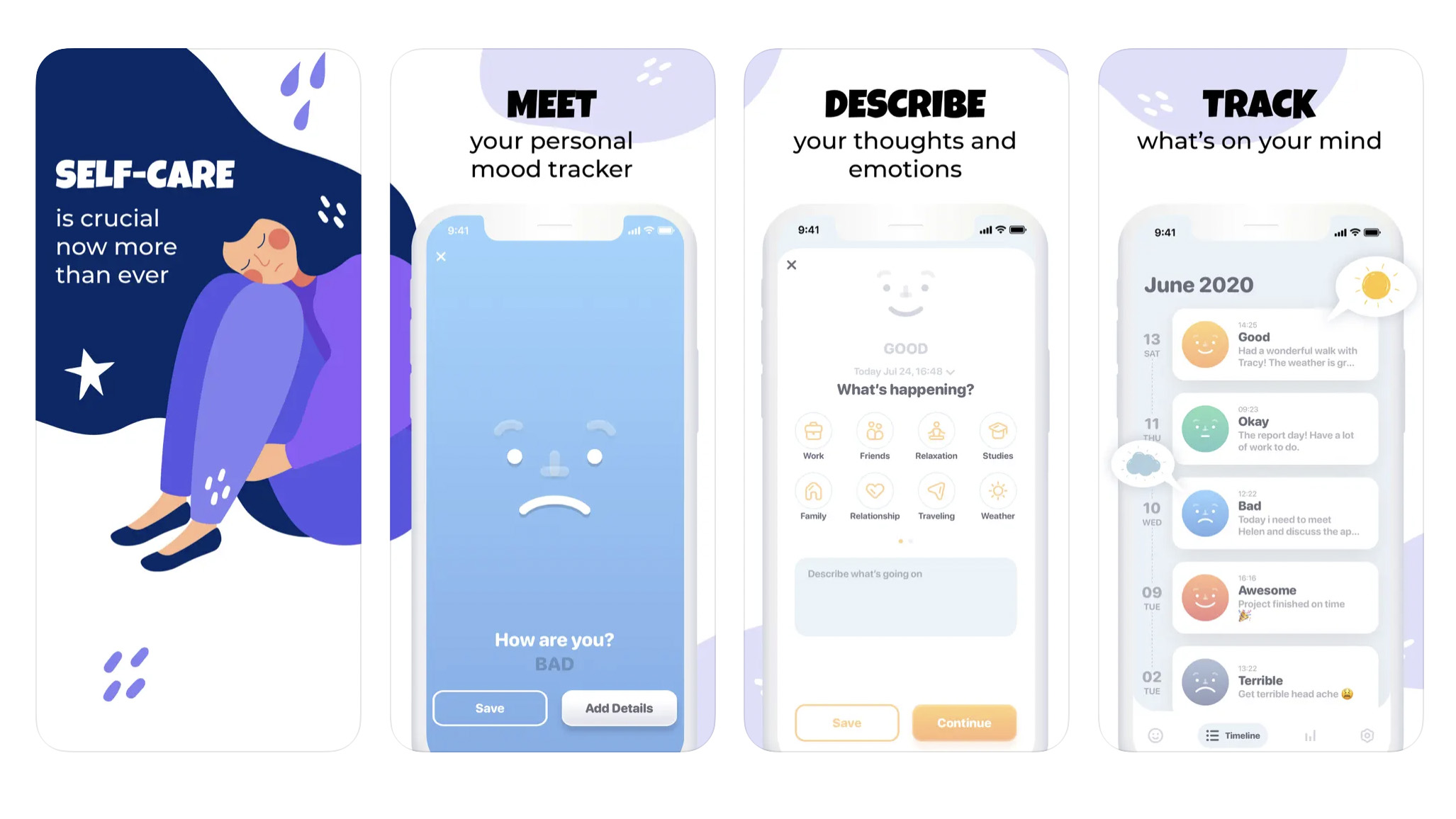This Apple Watch app is an easy way to track your moods
Moodnotes is a vital tool for keeping tabs on how you're feeling

iMore offers spot-on advice and guidance from our team of experts, with decades of Apple device experience to lean on. Learn more with iMore!
You are now subscribed
Your newsletter sign-up was successful

iPhone / Apple Watch – Free (In-App Purchases)
Want more apps? Check out our hand-picked lists:
- Best iPhone apps
- Best iPad apps
- Best macOS apps
- Best Apple Watch apps
In today's fast-paced world where stress and anxiety can easily take hold, it's important to stay aware of our moods so we can notice what affects our feelings and intervene to get ourselves back to neutral.
Enter Moodnotes, a handy mood tracker and journaling app designed for the iPhone and Apple Watch, offering users a comprehensive tool to record their emotions and, in the process, cultivate healthier thinking habits over time.
At the core of Moodnotes is its ability to effortlessly track your mood and identify triggers, providing valuable insights into the factors that influence your emotional state. The app takes mood tracking a step further by incorporating facial scanning technology too, allowing users to visually express their emotions through their device's camera – although I'm personally not sure how necessary that feature is.
Moodnotes is available for both your Apple Watch and your iPhone, but I think using it on both is ideal, that way you get the incredibly simple interface on your Apple Watch, which I think makes it more likely you'll remember to log your moods, then you can look at everything you've recorded in more depth from the iPhone app when you have the time.
What sets Moodnotes apart from other mood-tracking apps is its foundation in scientifically-supported content from cognitive behavior therapy (CBT) and positive psychology. Created by design experts and clinical psychologists, the app provides users with self-awareness articles authored by mental health experts. This unique feature not only helps users understand their emotions but also offers expert guidance on developing healthier thinking habits.
Moodnotes goes beyond basic mood tracking with a journaling feature, enabling users to add notes each day and keep memories with photos or pictures. This feature adds a personal touch and more meaningful context beyond mood tracking.
What are the benefits of mood tracking?
There are plenty of benefits to mood tracking. It empowers you to recognize patterns in your emotions, which can help to identify triggers for mood fluctuations (like certain foods, exercise, activities or stages of your menstrual cycle), enabling you to ultimately take control over your mental well-being.
iMore offers spot-on advice and guidance from our team of experts, with decades of Apple device experience to lean on. Learn more with iMore!
By understanding the nuances of your moods, you're more likely to be able to make informed decisions that'll reduce anxiety, enhance your sense of well-being, and bring new, helpful perspectives to challenging situations.
Moodnotes is free, but for those seeking an elevated mood tracking experience, the app offers a premium membership (from $9.99/£9.99 per month or from $24.99/£24.99 per yaer) with more exclusive features, like unlimited entries per day, more notes to enrich your entries, access to notable insights about your mood, and additional articles for a deeper understanding of your mental well-being journey.
If one of your goals for 2024 is to boost your well-being or find a bit more balance in how you feel day to day, Moodnotes is a user-friendly interface with expert-backed content and premium features that's a valuable companion for anyone striving for emotional balance and resilience.
iMore's daily App of the Day post helps you find great apps you've never heard of on your iPhone, iPad, Mac, and Apple Watch, curated each day by our expert team!

Becca Caddy is a contributor to iMore, as well as a freelance journalist and author. She’s been writing about consumer tech and popular science for more than a decade, covering all kinds of topics, including why robots have eyes and whether we’ll experience the overview effect one day. She’s particularly interested in VR/AR, wearables, digital health, space tech and chatting to experts and academics about the future. She’s contributed to TechRadar, T3, Wired, New Scientist, The Guardian, Inverse and many more. Her first book, Screen Time, came out in January 2021 with Bonnier Books. She loves science-fiction, brutalist architecture, and spending too much time floating through space in virtual reality. Last time she checked, she still holds a Guinness World Record alongside iMore Editor in Chief Gerald Lynch for playing the largest game of Tetris ever made, too.

